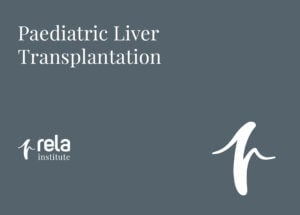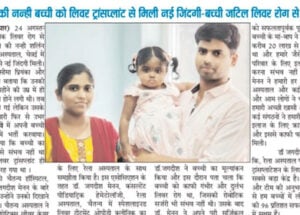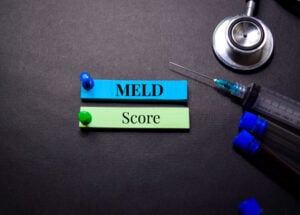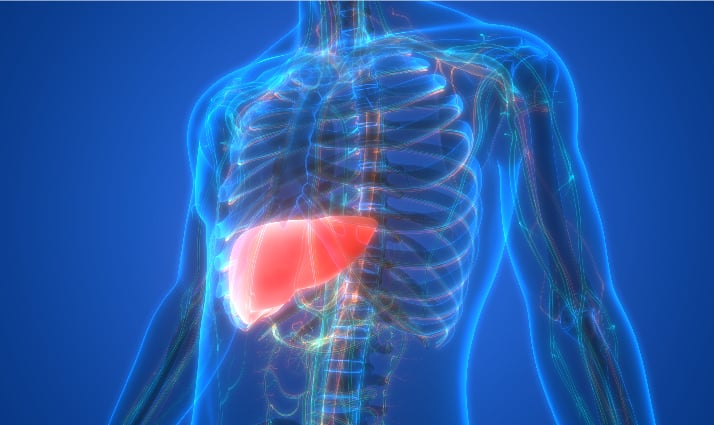All About Becoming a Liver Donor
April 26, 2025

Unlike the kidneys, there is only one liver. Then, how is a living donor liver transplant possible?
The answer to this is in the fact that, unlike any other organ in the human body, the liver has a special characteristic of regenerating itself from a part, which means that if a portion of the liver is removed, the other portion can regrow to the original in a certain span of time. Thus, a portion of liver taken from the donor can help save the life of another waiting for liver transplantation.
Who can be a Liver Donor?
Any healthy adult who is willing and passes a stringent donor evaluation of health information, including counseling, blood tests, and medical imaging. can be a donor.
Suitable Liver Donor Criteria:
18-55-year-old adult (for donation to a child, the upper limit can be 60 years), who,
- Does not have any existing medical conditions
- Is not an avid smoker, does not do recreational drugs
- Physically and psychologically fit and strong for surgery
What Disqualifies You From Being a Liver Donor?
- 65 years or older with other serious illnesses
- Severe organ disease due to diabetes
- Severe Obesity
- A severe and active liver disease, such as hepatitis B
- Alcoholics and drug addicts
- Severe or uncontrollable infection, such as HIV (human immunodeficiency virus)
- Diagnosed with aggressive cancers such as bile duct cancer, lymphomas, bone cancer, and myeloma type cancer
- Failure of other organs apart from the liver
- Irreversible brain damage or disease
- Severe, untreatable lung, liver, and heart diseases
- Pulmonary hypertension
- Autoimmune diseases such as rheumatoid arthritis, multiple sclerosis, etc
How Much of the Liver Part is Safe to Donate and Help Save a Life?
Generally, about 60% of the donor’s liver is taken for transplantation. One of the two lobes is required. If it’s the right lobe, then 60-70% of the whole liver is required, and if it’s the left lobe, then 30-40% of the whole liver. This selection is based on the need of the patient undergoing transplantation, at the same time, on the anatomy of the donor as well.
For liver transplantation in kids, only 15-25% of the adult liver (which is the left lateral segment) may be required.
What is the Recovery Time for the Liver Donor?
The liver begins to regenerate almost immediately after the surgical procedure, both for the donor as well as the recipient. Generally, the hospital stay is 5-7 days if no complications arise. In 4-6 weeks, the donor would be strong enough to get back to simple routine work and may resume his original work-based activities in full swing after 2-3 months.
Are there any Major Risks Involved for Liver Donors?
The golden rule of organ donations is not to put the donor’s life at risk to save the life of the recipient. It is, therefore, of paramount importance that:
- The volunteer is counseled and explained in detail the whole process, with medical implications involved.
- A detailed evaluation is done before passing/they qualify to become the donor.
- Post-op recovery support is provided.
How is a Liver Donor Assessed?
The potential donor undergoes a battery of tests, scans, and specialist consultations to assess fitness. The entire donor process may take 3-4 days, though occasionally it can be longer. If during any of these tests a problem in the donor is identified that can increase the risk of surgery, then further testing will not be continued, and the donor will be informed (in private if requested by the donor) about it. On average, 50% of all tested donors can proceed with liver donation. The aim of these tests is to
- Confirm that the donor and patient are blood group compatible.
- Confirm that the donor has a healthy liver and excellent liver function.
- Assess the size of the liver and make sure that when divided into two parts during the donor operation, the removed liver will be sufficient for the patient to recover, while the donor will be left with enough liver to help make a quick recovery from the operation.
- To assess the overall health of the donor in terms of his heart function, lungs, and kidneys. Various specialists, including an independent assessor (a physician outside the transplant team) and a senior anesthetic consultant, will also see the donor. This is important as donors with health problems such as diabetes, heart disease, or lung problems will not be considered suitable for donation.
- The donor will also have private discussions with the transplant team members and the psychologist to evaluate whether the donor wants to undergo the donor operation voluntarily.
What Happens to Liver Donors After Surgery?
After donor operation, the donor is transferred to the Liver ICU where he/she will be carefully monitored for 2-3 days. An epidural catheter will be placed in the back prior to surgery in the operating room, and continuous pain killer medication will be administered in the ICU through this to keep the donor comfortable and pain-free. The donor will have regular blood tests and scans to ensure that the liver is recovering well. He/she will be made to get out of bed and walk a few steps in the ICU itself and will be started on a diet. Once stable, he/she will be transferred to the Ward where he/she will stay for another 4-5 days. The average duration of stay in the hospital is 7 days. The donor is well, on a normal diet, and walking comfortably by the time of discharge.













